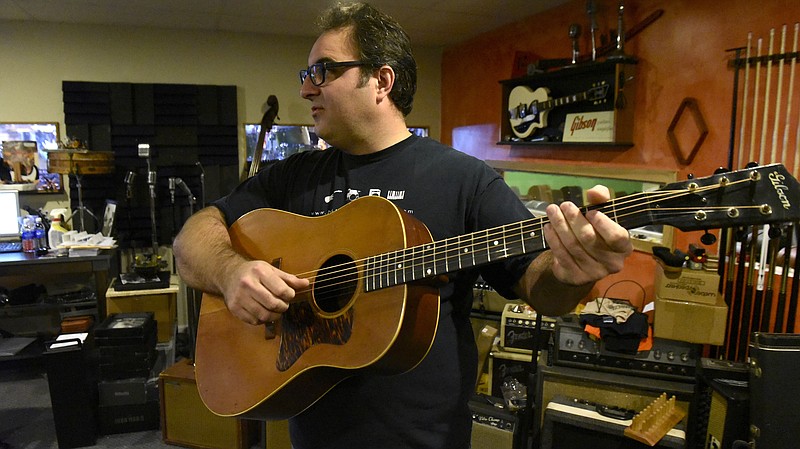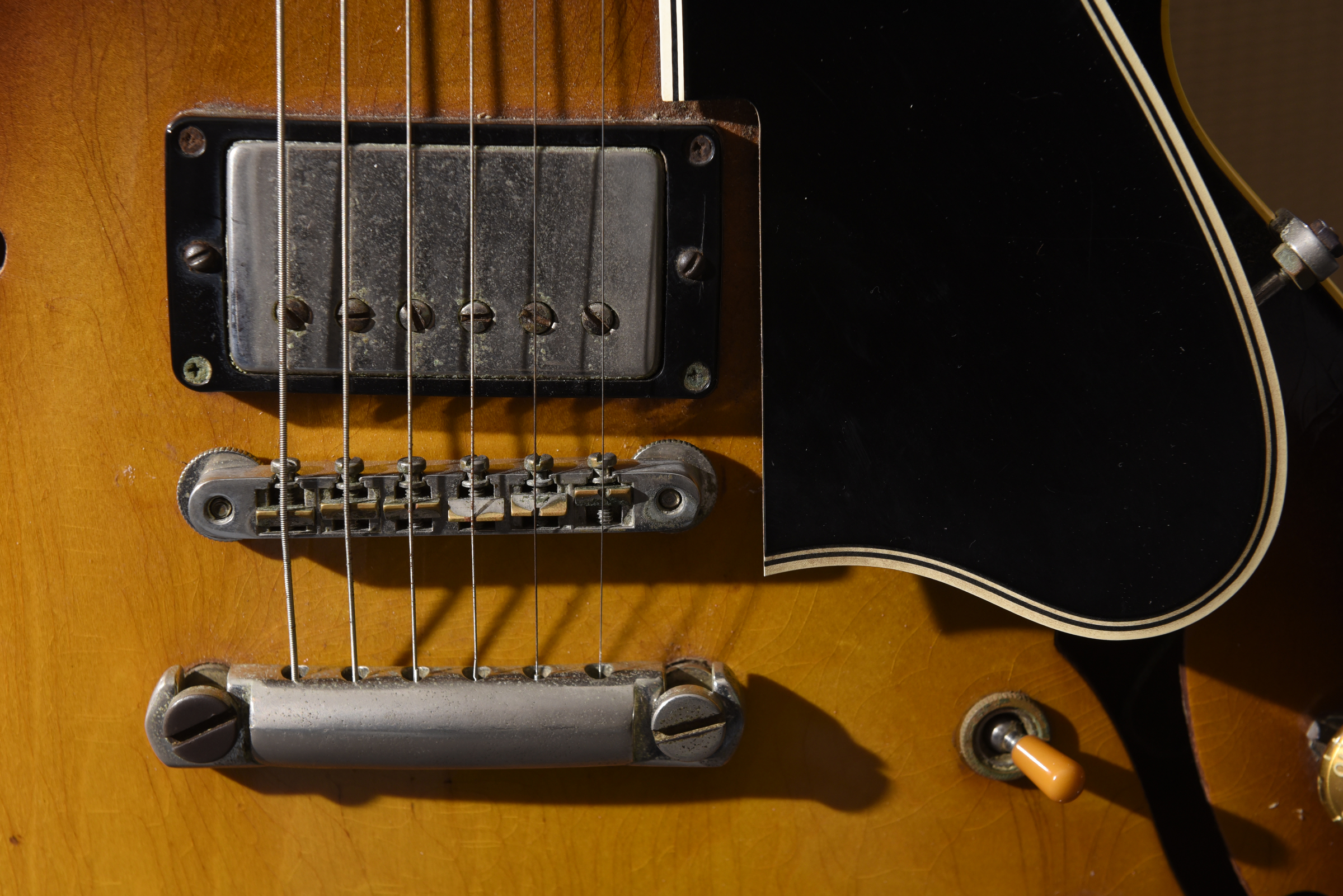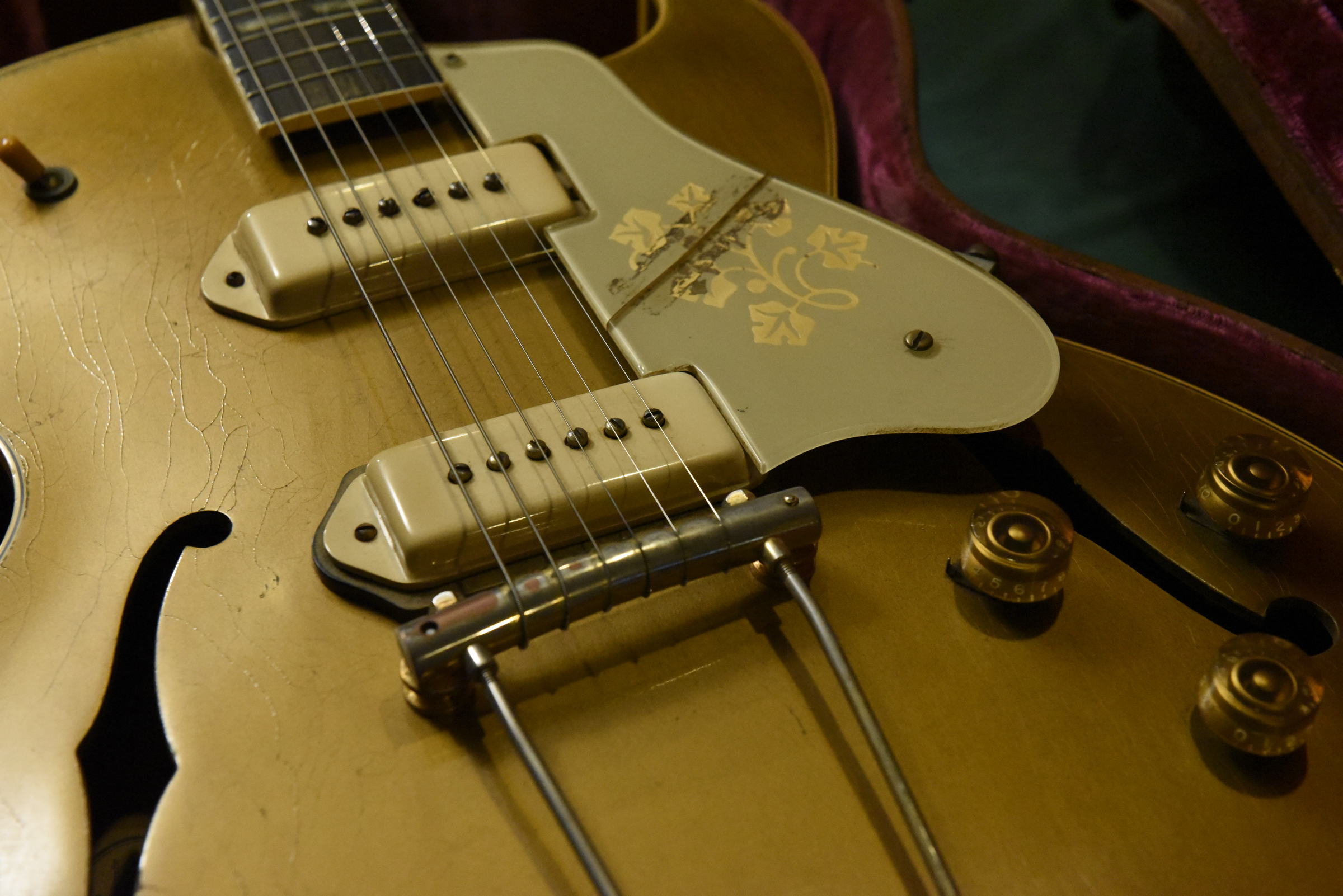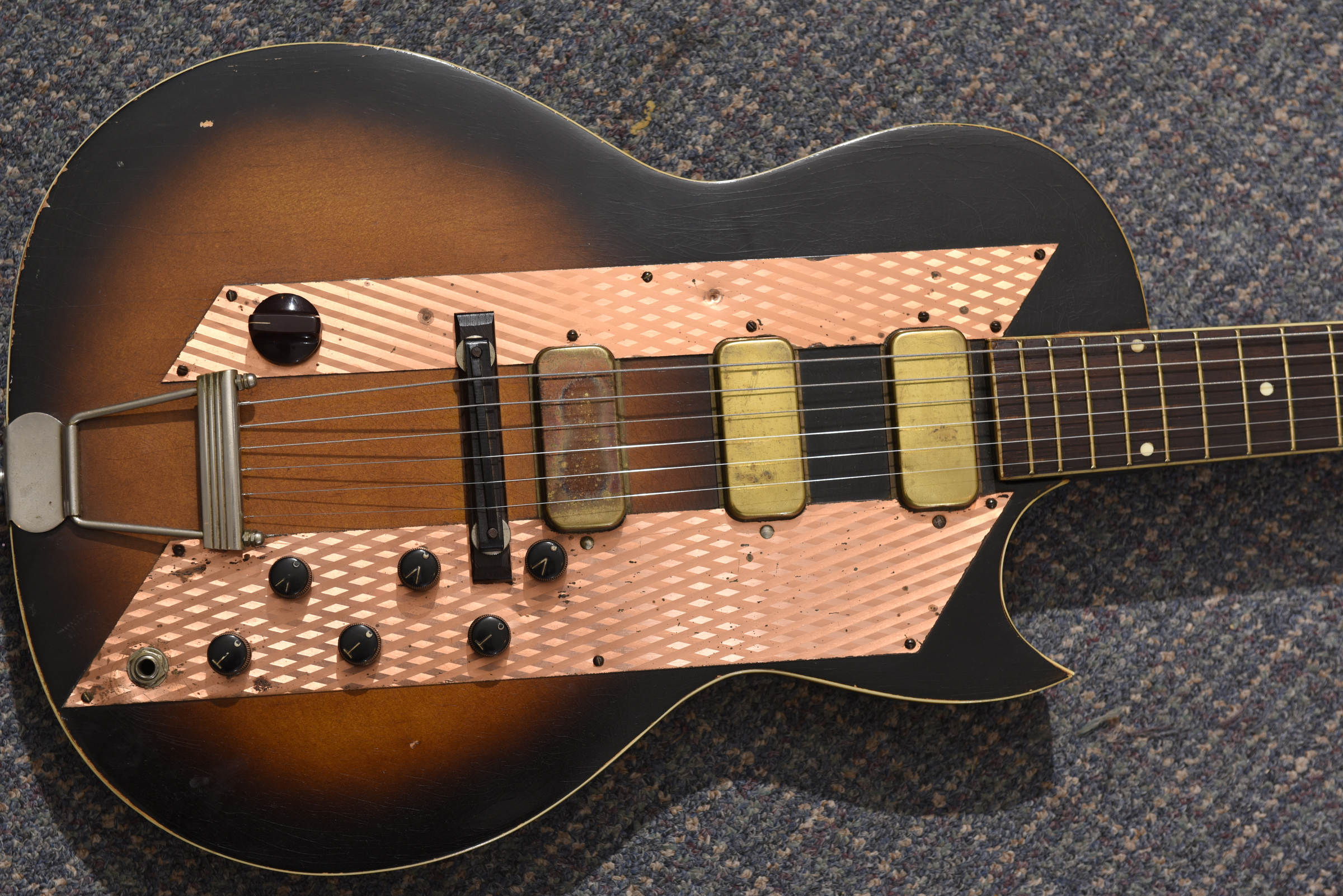To a non-musician, Brad Putt's Gibson J-35 probably doesn't seem all that special. The double curves of its dreadnought body look similar to countless other guitars, and its blond spruce top has been lightly scuffed from 74 years of honest use.
Nothing immediately suggests it's the kind of rare instrument that can cause guitarists' eyes to bug and send their bank account into financial hysterics.
But when Putt, the owner of Main Stage Music in Dayton, Tenn., had the chance to add the J-35 to his vintage guitar collection earlier this year, he wasn't thinking about its rarity or the fact that it regularly sells for upwards of $10,000. Instead, the 38-year-old focused on the shimmering resonance of its big body when he strummed it and - even more importantly - its story.
"This guitar spent its entire life in Rhea County, and that's a big deal because this guitar costs a lot of money," Putt says, pulling the guitar out of a sleek black case.
Gibson, he adds, numbered its guitar models to reflect the instrument's retail cost. The J-35 sold in 1941 for $35, about $567 in 2015 dollars.
"Think about that," Putt says, fingering chords as he talks. "That's a lot of money to spend on a guitar in Rhea County [especially at the time]. Rhea County has always been a working-class county, so to have something like this was a big deal.
"[The owner] comes back from the war, and he plays it, then his son plays it, and then his grandson plays it, and I bought it from his grandson. [The owner's family] said, 'We want you to have it, so long as you keep the history alive.'"
To Putt, music and history are often one and the same, especially in his family.
His grandparents met in a guitar class, and his grandfather played in a touring Western swing band called Rex & The Ramblers in the 1940s. His parents played music together, too, and to supplement the family income during the economic recession of the early '80s, his father repaired instruments in their basement.
Putt's family relocated to Tennessee when he was a teenager, and his first job was at L&M Music off Lee Highway. In 2003, he opened Main Stage Music. Even his son, Gibson, was named after a guitar.
"To say I got [into music], honestly, is an understatement because it's all I've ever known," Putt laughs, the frames of his Buddy Holly-style glasses bouncing on his nose. "To quote 'The Godfather III,' I tried to get out, but they just kept pulling me back in."
He started collecting guitars in his teens when he pulled a cherry-red 1962 Supro Belmont out a garbage can in Wausau, Wisc. He has trouble putting an accurate number to how many guitars he's owned since then, but he says he's confident it's in the hundreds.
His current collection includes about 100 instruments, some of which are at his home in Hixson and the rest in the rear of his store in a converted recording studio control room he lovingly calls "The Vault."
Unlike many collectors, Putt despises eBay and staunchly avoids using the Internet, which he says makes building a collection of rare instruments too easy and impersonal. He much prefers to leverage his network of contacts to locate potential additions, then hop in the car, take a drive, shake a hand and hear its backstory.
"Each one of these guitars - each one of these stories - is a piece of my history," he says. "I associate these guitars with the people I've met and the adventures I've been on. Some people collect little glass hummingbirds or shot glasses from Carson City; I've got guitars that I associate with important people and moments in my life."
Many of the instruments in his collection are valuable rarities, like the J-35 and the even more prized Gibson ES-335. Some of them, however, are just interesting oddities, such as a 1935 Supertone Gene Autry Roundup - complete with a lasso-twirling cowboy stenciled on the top - and a quartet of Danelectro guitars with swooping "fins" reminiscent of '50s convertibles.
Putt's collection is the envy of many of the musicians who come into his store.
Chattanooga-based guitarist Anthony Sims is a member of several local groups including The Pearl Snap Preachers and The Hillbilly Sins. He regularly visits Main Stage Music to shoot the breeze with Putt, but when it comes to guitars, Sims says, those conversations become more like "shooting the hurricane."
"Usually, when I talk to Brad about these guitars, he'll tell me maybe 30 seconds of what the guitar is and 30 minutes of the story that led up to him getting the guitar," Sims laughs. "It makes things stick with you. It probably helps him sell guitars, too, because he sells the story, too, not just the guitar."
Knowing each instrument's origins seems to brand it more firmly in Putt's memory. Despite the confused stacks of all-too-similar cases piled into The Vault, he has no trouble locating specific guitars, and he slips seamlessly between explaining each model's significance as an instrument and relaying its personal history.
"This guitar is a transitional model," he says, pointing to a golden 1961 Gretsch Nashville 6120. "By '61, they had switched from the single cutaway style to modernize it and make it a double cutaway."
But what he remembers best, even more than its design quirk, is the yearlong quest to acquire it. Despite offering to pay his asking price, the owner was reluctant to part with the guitar, and by the time he decided to let it go, it was at the worst possible moment, Putt says.
"Of course, a year later during tax time, which means I owe all sorts of money to the government, he calls me up and says, 'Well, I decided I'll go ahead and sell it,'" he laughs. "I had to beg, borrow and steal to get it."
All too often, Putt's love of guitars has put his financial security in peril. He once drove to a home in North Alabama to spend all the money he and his wife received from their wedding on a 1963 Gibson Firebird III. When he was negotiating to buy another old Gibson, the seller asked him to call the bank to hear Putt's account balance and then settled on a price that cleaned him out.
"He knew the money was in there, and he knew me, and he knew that the price of admission was everything I had," Putt says. "I wrote the check and ended up buying this guitar for about $1,000 more than I offered him."
Putt's wife, Jacqui, says she lacks his memory for stories, but she doesn't recall being surprised by any of his purchases. She doesn't remember the trip to buy the Firebird, but she also doesn't dwell on the price tags of her husband's acquisitions. Inevitably, she says, he's making smart, informed decisions.
"I look at it as an investment for retirement. Maybe he doesn't, but I do," she laughs. "He's always been able to turn around and sell something else and make up for [buying a guitar]. I've never felt threatened like, 'How are we going to make our house payment?' He doesn't just make a purchase unless he knows he can cover it somewhere else."
Buying these guitars is an investment, Putt says, but not so much a financial one. He prefers to see it as a way of paying to ensure that an interesting instrument's story doesn't conclude too abruptly or with an unhappy ending.
"If you can tell that you'll effectively see this guitar destroyed through mismanagement or poor stewardship, then I'll tactfully ask them if it's something they would entertain taking an offer on," he says. "I make sure to let them know that it would be given a good home here."
Contact Casey Phillips at cphillips@timesfreepress.com or 423-757-6205. Follow him on Twitter at @PhillipsCTFP.



